Brian Fargo has been making role playing games for almost 30 years, from The Bard's Tale through to Baldur's Gate and Fallout. At his GDC China keynote in Shanghai this week, he discussed what, to him, makes a successful RPG. First of all, for any project, "It's also important to expose yourself to life," he said. "I think a lot of people get themselves so entrenched in the gamer culture that they can't experience anything else ... Take a chance to experience life so you can write dialog, and figure out how people actually talk." What makes an RPG? "Character identification and creation, that's certainly a hallmark of an RPG," says Fargo. But this makes it more difficult on the writers. "When it's a character creation game, we don't know anything about you from a writing standpoint." The other tactic is to define the character, and build the game against that, "which provides a better writing environment, in my opinion," he added. These days though, players really want to create their own character, which is "a different writing exercise, and it seems like a subtle thing, but it's a very big deal. The hardcore players demand that sort of thing." Character progression is also important. Fargo personally doesn't like when enemies level up with you. "I think the idea of your characters getting stronger, and things that were a problem before no longer being a problem gives you a sense of feeling good," he says. An RPG also needs deep cause and effect, which helps with immersion. In The Bard's Tale, for example, early on you can be nice to a dog, or be mean to it. If you're nice to the dog, it follows you, and there are scenes that happen 10 or 20 hours in that have to do with the dog. If you were mean to it, you'll never see that content. On a more micro level, you need to make players feel the effect of a new weapon, every time they get one. RPGs also need a robust conflict system - combat, stealth, and so on. "You have to know that this is where they're going to spend 90% of their time," says Fargo. "And they have to use their brain during this part of it. If they're just clicking, clicking, clicking and falling asleep while they're doing it, you're going to lose their attention for that part of it." To really make players feel good, you should fool them into feeling like they've figured out their own way of doing things. "We think we've done a good job when people think they're cheating us," he adds. Finally, an RPG needs a strong world sense, because most games actually have most of the above elements. In Skyrim, for example, the world is massively huge, which helps players to get the sense that there's something greater than them at work. Maintaining Vision Fargo's first piece of advise is that developers should focus on the game's sensibilities. "People get too caught up in the weeds of what a game's going to be before they can focus on the sensibility," he cautioned, adding that he has gone into meetings where people just want the bullet points first. In order to solve this problem, Fargo's teams create a vision document, which he also demands from people that are pitching to him. This document is similar to a film pitch document, stating why the game is different. "Sometimes people put in vision documents that it's going to be graphically unique, or humorous, but you need examples," he says. "If they say it's graphically unique, and I feel like I've seen it 100 times before, that's not really going to work." "It seems obvious, but very obvious things will get lost along the way," Fargo adds. "They'll have something and slowly the product will twist and turn, and go another way. I had a developer come to me one time, and he wanted to pitch a product. He wanted to tell me all about the storyline. He went into all of these details about the backstory and characters, and I said to him 'I don't want to hear anything about the story, tell me what your vision is.' And he couldn't do it. He couldn't tell me why that game should exist." While collaboration is important, Fargo feels that games need a vision director. "Yes, take your input from other people, but don't let the product get defined by sales, marketing, group consensus, that sort of thing," he cautions. "To me when you're trying to have a lot of masters trying to create a product together, you're asking for problems." Everybody thinks they're a game designer, he joked, adding that "someone has to be issuing editorial control to keep things on track. To make a game that players will actually get immersed in, you should "treat the audience with intelligence," Fargo says. "Our players are smart, especially on the role playing side. They will understand details and they'll understand nuance ... I find a lot of games talk down to who their player is. We never talk down, we always talk to our players as equals." "We assume that players will be as good at our games as we are in about two hours," he adds. "You're going to be better off aiming smarter than aiming dumber. The thing is, people love good puzzles. In the old days, we'd stop you until you figured out that puzzle. Now we give you puzzles, but we don't stop you dead in your tracks. But people do like solving them." RPG development Pre-production is especially important. "Once you're writing and designing a product, the best creativity tends to come in waves," he says. "Anybody could create something generic in about five seconds. True creativity tends to come in waves, and you can't do it in a crunch." So to Fargo, pre-production is when you need to come up with most of your story elements. When you're just focusing on implementation and you're operating under time pressure, you can't focus on story or creativity. Studios often start a project without knowing what they're really doing, because they're trying to keep 150 people busy, but this can get you off on the wrong foot, he says. If you do proper pre-production, "everybody knows what they're making. It's more motivating when you know what you're making, but also people feel like they can contribute more." After you begin development, "nothing replaces gameplay reiteration," Fargo says. "We all know this, but rarely are we all give the chance to do what we know is necessary. Blizzard is one of the top developers in the world. They're known for starting their projects over. They're known for long product cycles." But this pays off with the excellent games they make. "If Blizzard needs it, everyone else is going to need it," he joked. But most developers don't have the money or clout to make this happen, because they're beholden to publisher schedules. "I say shame on the publishers that make developers work on these products round the clock," Fargo says. "They've got it all together, but they need that last push to really polish it, and they don't get [the extra time], and down goes your metacritic rating, down goes your sales." Game balance is incredibly important, of course. To Fargo, "If you're not dying, you're not having fun." Tension brings excitement, he says. "I think my problem with a lot of the Facebook games is you can't die! You lose all the tension." "These days people want a save game every three seconds," he adds. "You need the dying, and need the tension. But you also need to get the players to blame themselves when they die. They knew they were low on health, but they got greedy and kicked open one door, and it was their own mistake." This means you have to be careful with AI. "If things are happening in a seemingly random way, and you have the difficulty ramped up," players will start blaming the computer instead of themselves, he says. Lastly, you should playtest the game, and observe people. It's obvious, but this can really help developers discover what elements could ruin the experience. Everything good about a game is out the door if the game runs at 9 fps. "Everybody knows [what will ruin the game], they have it in the back of their heads, but nobody wants to talk about it," he says. User tests are crucial here, because they'll point out all the things you already know, and give you ammunition to actually do something about it.
GDC China Keynote: Brian Fargo Talks RPG Legacy
Nov. 13, 2011

Tags:
2011
Subscribe to our newsletter
About JikGuard.com
JikGuard.com, a high-tech security service provider focusing on game protection and anti-cheat, is committed to helping game companies solve the problem of cheats and hacks, and providing deeply integrated encryption protection solutions for games.
Top

David Dastmalchian Comments On M. Bison Role, Says He's Playing Lots Of STREET FIGHTER 2
July 28, 2025
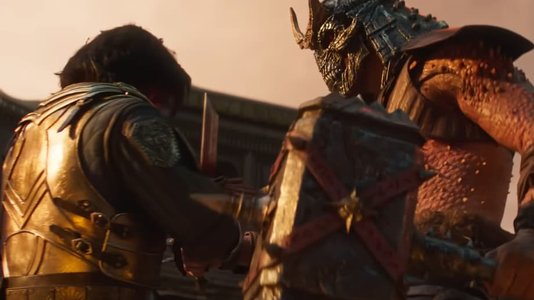
MORTAL KOMBAT II Producer Teases Third Installment And Potential Spin-Offs
July 28, 2025
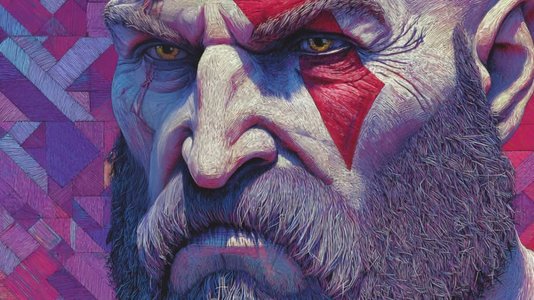
GOD OF WAR Showrunner Ronald D. Moore Discusses The Prime Video Adaptation's Tone And Development Progress
July 28, 2025

UKIE responds to adult games being pulled from Steam and itch.io after pressure from payment providers
July 28, 2025
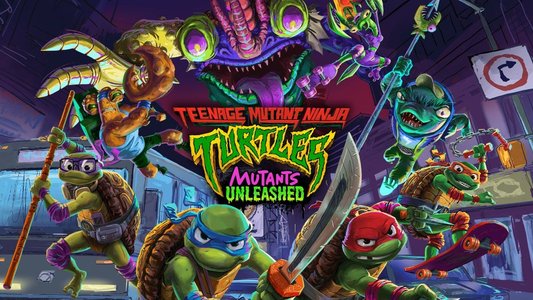
The studio behind Teenage Mutant Ninja Turtles: Mutants Unleashed brings in union after facing closure
July 28, 2025
Recent

David Dastmalchian Comments On M. Bison Role, Says He's Playing Lots Of STREET FIGHTER 2
July 28, 2025

MORTAL KOMBAT II Producer Teases Third Installment And Potential Spin-Offs
July 28, 2025

GOD OF WAR Showrunner Ronald D. Moore Discusses The Prime Video Adaptation's Tone And Development Progress
July 28, 2025

UKIE responds to adult games being pulled from Steam and itch.io after pressure from payment providers
July 28, 2025

The studio behind Teenage Mutant Ninja Turtles: Mutants Unleashed brings in union after facing closure
July 28, 2025

Some game firms are struggling with the complexities of the UK Online Safety Act
July 28, 2025
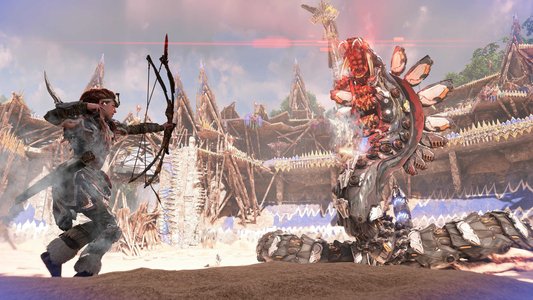
Sony sues Tencent for "slavish clone" of its "valuable" Horizon franchise
July 28, 2025
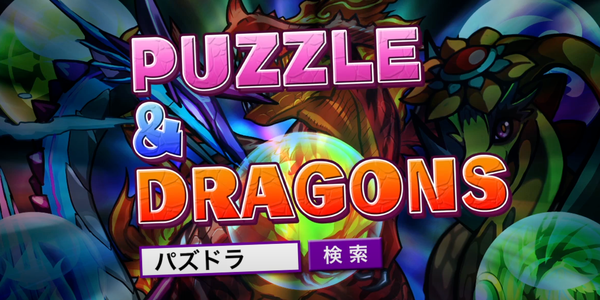
Puzzle & Dragons publisher/developer GungHo Online faces shareholder revolt
July 28, 2025

Dating App Breach Exposes Images of 13,000 Women
July 28, 2025

US Woman Gets Eight Years for Part in $17m North Korean Scheme
July 28, 2025
Blog

Security Risk Analysis for Racing Games
July 28, 2025

Are there hacks that increase gacha pull rates?
July 24, 2025

VMOS Open-Source: New Threat to Game Security
July 18, 2025

How Games Detect Black and Gray Studio
July 15, 2025

How Games Detect iOS Jailbreaks
July 11, 2025

FPS Game Anti-Cheat Solution
July 9, 2025

Black and Gray Industry Insights: HappyMod
July 7, 2025

Online Game Anti-Cheat Solution
July 4, 2025

iOS Code Encryption Solutions
June 26, 2025

Casual Game Security Risks Analysis and Solutions
June 25, 2025
Random

Motorola will give you a free smartwatch with its latest foldable phone deal - how to qualify
July 25, 2025

Puzzle & Dragons publisher/developer GungHo Online faces shareholder revolt
July 28, 2025

MADDEN 26 Player Ratings: Predicting The Best Rated Quarterbacks (QBs)
July 26, 2025
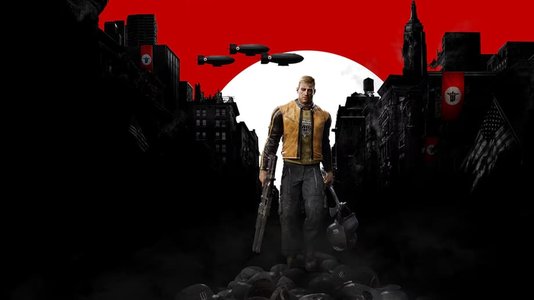
WOLFENSTEIN Live-Action TV Series In Development At Amazon
July 26, 2025

This electric screwdriver is a reliable addition to my toolkit - and it just got even cheaper
July 25, 2025

Some game firms are struggling with the complexities of the UK Online Safety Act
July 28, 2025

New Scattered Spider Tactics Target VMware vSphere Environments
July 28, 2025

I got ChatGPT Agent to deliver a truly useful report - and then NotebookLM took it to the next level
July 25, 2025

Confirmed: MADDEN 26 Ratings Week Begins On Monday; Full Reveal Schedule
July 27, 2025

The studio behind Teenage Mutant Ninja Turtles: Mutants Unleashed brings in union after facing closure
July 28, 2025
Most Views

How Games Detect GameGuardian
March 17, 2025

Explanation of Game Anti-Cheat Solutions
March 17, 2025

Cheat Engine Modifier Detection Solutions
March 18, 2025

Explanation of Unity Engine Encryption Solutions
March 17, 2025

How to Anti Hack in Client-Side Games
May 21, 2025

Cocos Engine Encryption Solution
April 8, 2025

How Games Anti-Debugging
April 15, 2025

Cloud Phone Detection Solution for Gaming
May 21, 2025

How Games Detect Frida
March 25, 2025

How Games Detect PlayCover
March 26, 2025


